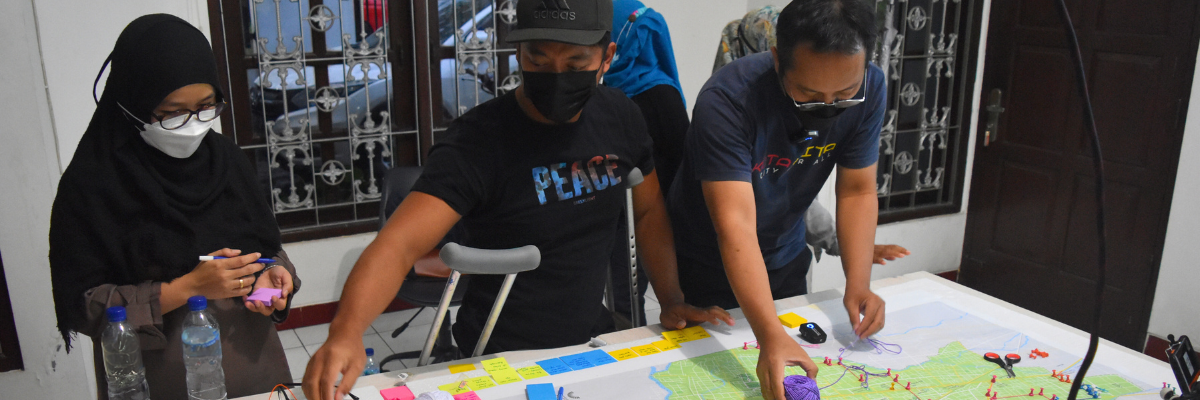AT2030: Building Capacity and Participation for Community-Led Solutions
Banjarmasin
As part of the UK Aid-funded AT2030 programme, Kota Kita Foundation, Global Disability Innovation Hub (GDI Hub), and University College London (UCL) have collaborated on participatory action research in Surakarta (Solo), Central Java, and Banjarmasin, South Kalimantan. This initiative aims to support persons with disabilities in accessing better life outcomes by increasing the uptake of assistive technologies (AT) and promoting disability-inclusive cities in Indonesia.
AT2030, a £40 million match-funded programme led by GDI Hub, is designed to test ‘what works’ to get assistive technology to those who need it around the world. During the initial phase of the project, Kota Kita, Sierra Leone Urban Research Centre (SLURC), and other local partners worked with persons with disabilities and community organizations in four settlements: Pelambuan and Kelayan Barat of Banjarmasin, Indonesia, and Dwozark and Thompson Bay of Freetown, Sierra Leone to conduct a survey using rATA (rapid Assistive Technology Assessment) — a new tool developed by the World Health Organisation (WHO) — to assess the need, use, supply, and impact of assistive technology. The process involved 16 data collectors and documented 2,046 respondents in these neighborhoods.
Findings that have been released on the two Indonesian cities, form parts of a series of global case studies on inclusive infrastructure. The findings from Solo and Banjarmasin highlight significant progress in disability-inclusive policies. However, challenges persist in achieving closer cooperation among city governments, citizens, and stakeholders in urban infrastructure planning and implementation to build more disability-inclusive spaces. To address this gap, Kota Kita used innovative participatory tools and methodologies, such as participatory photography, journey mapping, and toy figures 'personas' during the AT2030 programme in Solo and Banjarmasin to facilitate meaningful participation, enabling individuals to realize their needs and aspirations when designing urban spaces.
Between 2019 and 2021, two collaborative projects were implemented:
- The AT2030 Inclusive Infrastructure Case Study in Solo, a research study exploring inclusivity and day-to-day experiences of persons with disabilities in the built environment of Solo using various participatory approaches. (Download the report here)
- Building Community’s Capacity and Participation through Community-led Initiatives in Banjarmasin, a co-design initiative building upon prior research to understand the aspirations and priority needs of AT users, persons with disabilities, and non-disabled residents. This initiative resulted in the construction of Inclusive Public Spaces in Pelambuan and Kelayan Barat neighborhoods in the city.
